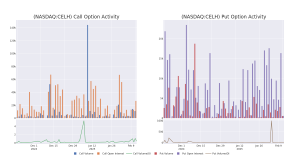Wall Street appears to like CVS (CVS) CEO David Joyner’s conservative approach to the company’s 2025 financial outlook, rewarding the stock with a nearly 15% bump by market close Wednesday. Joyner also used the opportunity to defend his pharmacy benefit manager unit, which, along with others in the business, has been under fire.
The company reported a beat on earnings, with $372.8 billion in full-year 2024 revenues and $97.7 billion in fourth quarter earnings — more than Wall Street’s expected $96.8 billion. But for 2025, CVS didn’t provide full-year revenue guidance. It did, however, estimate adjusted earnings per share at $5.75 to $6.
Joyner just completed his second full quarter at the helm of the $80 billion market cap healthcare giant and ended the full-year 2024 by beating Wall Street estimates, despite several headwinds pressuring the company throughout the year, resulting in weaker earnings throughout the first nine months.
Joyner told Yahoo Finance he chose to be conservative in order to regain confidence from the Street after the company’s health insurance business slowed amid higher-than-expected utilization by seniors last year — a problem all Medicare Advantage players struggled with.
“We did not create a lot of confidence in our ability to predict both the margins or the operating income, and, for that matter, even some of the revenues. So I have been cautious and prudent, and also guiding what I believe we’re going to be able to hit. So that’s the most important thing from an investment standpoint,” Joyner said.
Wall Street agreed, even though it did not get revenue guidance for full-year 2025 from the company.
“We reiterate our positive view on CVS post-4Q as the company introduced guidance that was ahead of buyside expectations and displays a degree of conservatism from new CEO David Joyner,” JPMorgan analyst Lisa Gill wrote in a note to clients Wednesday.
Joyner has started off the year strong but acknowledged that the problems from last year have not disappeared with the start of a new year. Despite a new administration under President Donald Trump, the company is still facing pressure for its pharmacy benefit manager (PBM) and the role it plays in the US healthcare system.
Congress is eager to curb what it deems to be middlemen who are driving health costs higher by keeping savings meant to help reduce costs for patients and setting reimbursements of prescription drugs that squeeze smaller pharmacies. Prior to the departure of his predecessor, Karen Lynch, in October last year, Joyner oversaw CVS’s PBM business, Caremark.


